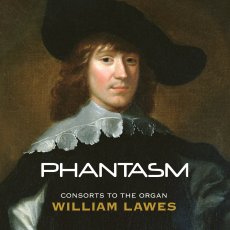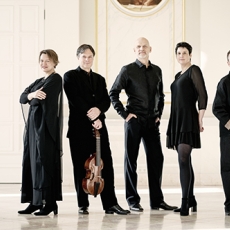Phantasm - Lawes: Consorts to the Organ - Musica Dei
It seems that Phantasm has a special liking for composers who are out of step with the conventions of their time. Their recordings also show that the musical landscape in England in the first half of the 17th century is more colourful than one may think. The two composers who are represented on the two discs to be reviewed here, hold some surprises for the unprepared listener.
The least-known is John Ward. The year and place of his birth are not known for sure. It seems likely that he was born in Canterbury where he started his musical activities as a singer. He worked for most of his life as an attorney, and he never took an official post as a musician. This means that strictly speaking he was an amateur in his capacity as a composer. He wrote some liturgical music, but he has become best known for his madrigals and his consort music.
As Laurence Dreyfus explains in his liner-notes there is a clear connection between Ward's madrigals and some of his consort music. The Italian titles of four consort pieces bears witness to that. '[We] hear a host of Italian 'madrigalisms' transplanted into an instrumental idiom with such subtlety and elegance that one never misses the words (...)', according to Dreyfus. Chromaticism is one of the features of Ward's consort music. His harmonic language is rather adventurous anyway, and he also makes use of interrupted cadences. The consort music for five and six parts is recorded here complete, and this not only includes the Fantasias, but also three In Nomine settings, which root in the polyphonic tradition.
In comparison William Lawes is far better known. He was held in high esteem by King Charles I, and the close relationship between the composer and the King ultimately led to Lawes' early death. He was part of the entourage of the King at the Siege of Chester, and although he was not supposed to take part in military action he joined a sortie and died in the process. The connection to the King had also a strong influence on his music. He could experiment in his compositions because his music was performed in the Privy Apartments of the King. 'The prestigious nature of these private performances - along with the personal support of the king which Lawes enjoyed - freed the composer's musical imagination in ways far beyond the aesthetic confines of a country house, the Inns of Court or an Oxford College, where the values of musical peers would have been far more conventional, judgmental, even condemning', Laurence Dreyfus writes in the booklet.
Conventional Lawes' music is definitely not. Time and again one hears daring harmonies, often on the brink of the bizarre; Dreyfus sometimess calls his musical moves 'ugly'. Interestingly in his music we meet a feature which is also part of Ward's consort music: interrupted cadences. Gently forward-moving passages are few and far between. And if they appear they are mostly abruptly interrupted by some shocking dissonants or sudden modulations. There are other features which are noticeable, such as passages in which the organ suddenly takes a leading role, episodes with several viols moving in parallel, sometimes in the form of a fauxbourdon and frequent pedal tones. Laurence Dreyfus explains the course of Lawes' musical discourse in detail in the booklet. It is helpful in understanding what exactly he is doing in these consorts.
As these recordings show Phantasm is one of the most adventurous viol consorts around. Their performances are technically brilliant and they play with much imagination and zest. These interpretations are far away from the 'objective', rather analytical approach of older performances. This way the idiosyncracies of the music are fully revealed, and the individual character of each composer's oeuvre emphasized. These two discs definitely belong to the best in the discography of English consort music. If you like this kind of repertoire, don't miss them.

